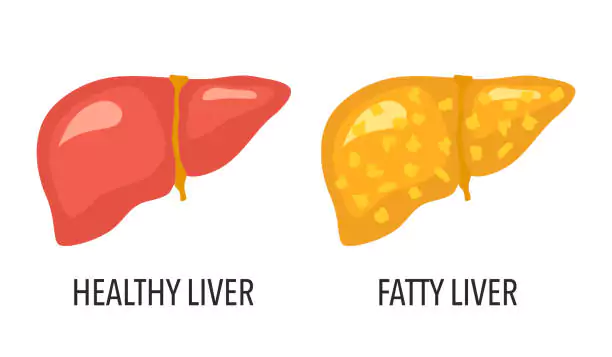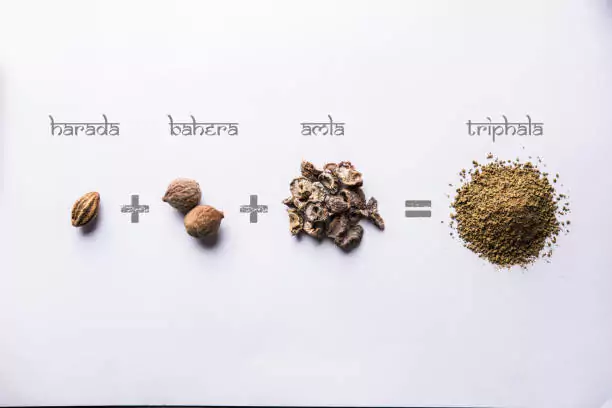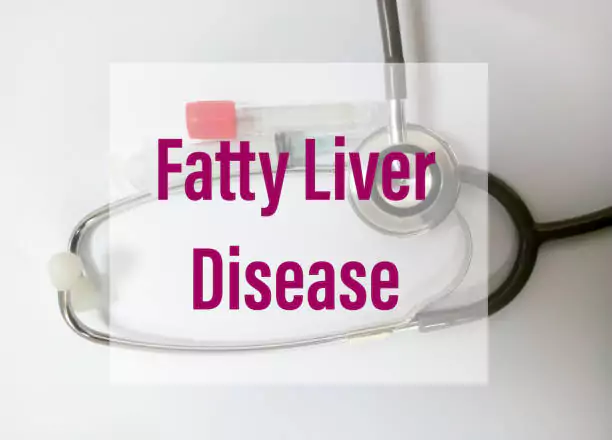Ayurveda, Blog, health tips
Fatty Liver Cure- Ayurvedic Treatment and Home Remedies
Fatty Liver Cure: Ayurvedic Treatment and Home Remedies
A disorder known as Fatty Liver disease (FLD) occurs when too much fat accumulates in the liver. It is the most common liver disease in the world, affecting an estimated 25% of adults worldwide. FLD can be caused by a number of factors, including obesity, diabetes, high cholesterol, and excessive alcohol consumption.

There is no one-size-fits-all cure for fatty liver disease, but there are a number of things that can be done to manage the condition and prevent it from progressing. These include:
- Losing weight: If you are overweight or obese, losing even a small amount of weight can help to improve your liver health. Lose 1-2 pounds weekly, ideally.
- Eating a healthy diet: A healthy diet for fatty liver disease includes plenty of fruits, vegetables, and whole grains. It is also important to limit your intake of saturated and unhealthy fats, sugar, and processed foods.
- Exercising regularly: Exercise helps to reduce inflammation and improve liver function. Try to engage in moderate activity most days of the week for at least 30 minutes.
- Avoiding alcohol: If you drink alcohol, it is important to do so in moderation. For people with fatty liver disease, the recommended limit is no more than 1-2 drinks per day for men and 1 drink per day for women.

In addition to these lifestyle changes, there are a number of Ayurvedic treatments and home remedies that can help to improve fatty liver disease. Some of these include:
- Aloe vera: Aloe vera is a natural liver detoxifier and can help to reduce inflammation. You can take aloe vera gel capsules or drink aloe vera juice.
- Triphala: Triphala is a combination of three Ayurvedic herbs that are known for their liver-protective properties. You can consume Triphala powder or in pill form.
- Kutki: Kutki is another Ayurvedic herb that has been shown to be effective in treating fatty liver disease. You can take Kutki capsules or powder.
- Bhumi amla: Bhumi amla is a plant that is known for its antioxidant and anti-inflammatory properties. You can take bhumi amla juice or capsules.
- Ginger: Ginger is a natural anti-inflammatory that can help to improve liver function. You can add ginger to your food or drink ginger tea.
- Turmeric: Turmeric is another natural anti-inflammatory that has been shown to be beneficial for liver health. You can add turmeric to your food or take turmeric capsules.
If you have fatty liver disease, it is important to talk to your doctor about the best treatment options for you. A combination of lifestyle changes and Ayurvedic treatments may be the most effective way to manage your condition and prevent it from progressing.

Here are some additional tips for managing fatty liver disease:
- Get regular checkups with your doctor.
- Keep an eye on your triglyceride, cholesterol, and blood sugar levels.
- Comply with your doctor’s advice when using medication.
- Avoid smoking and excessive caffeine intake.
- Get enough sleep.
- Manage stress levels.
By following these tips, you can improve your liver health and reduce your risk of complications from fatty liver disease.
Here are some of the Ayurvedic principles that can be used to treat fatty liver disease:
- Dosha balancing: Ayurvedic practitioners believe that an imbalance of the doshas, or three fundamental energies of the body, can lead to disease. In the case of fatty liver disease, an imbalance of the Kapha dosha is thought to be a contributing factor. Treatments that aim to balance the kapha dosha may be helpful.
- Herbal medicine: There are a number of herbs that have been shown to be beneficial for liver health in Ayurvedic medicine. Some of these herbs include Triphala, Kutki, bhumi amla, and ginger.
- Diet and lifestyle changes: A healthy diet and lifestyle are essential for managing fatty liver disease. This includes eating a healthy diet, exercising regularly, and avoiding alcohol.
If you are considering using Ayurvedic treatments for fatty liver disease, it is important to talk to your doctor first. Ayurvedic treatments can interact with other medications, so it is important to make sure that they are safe for you.
I hope this blog post has been informative. Please feel free to ask any queries you may have in the comment section below.



